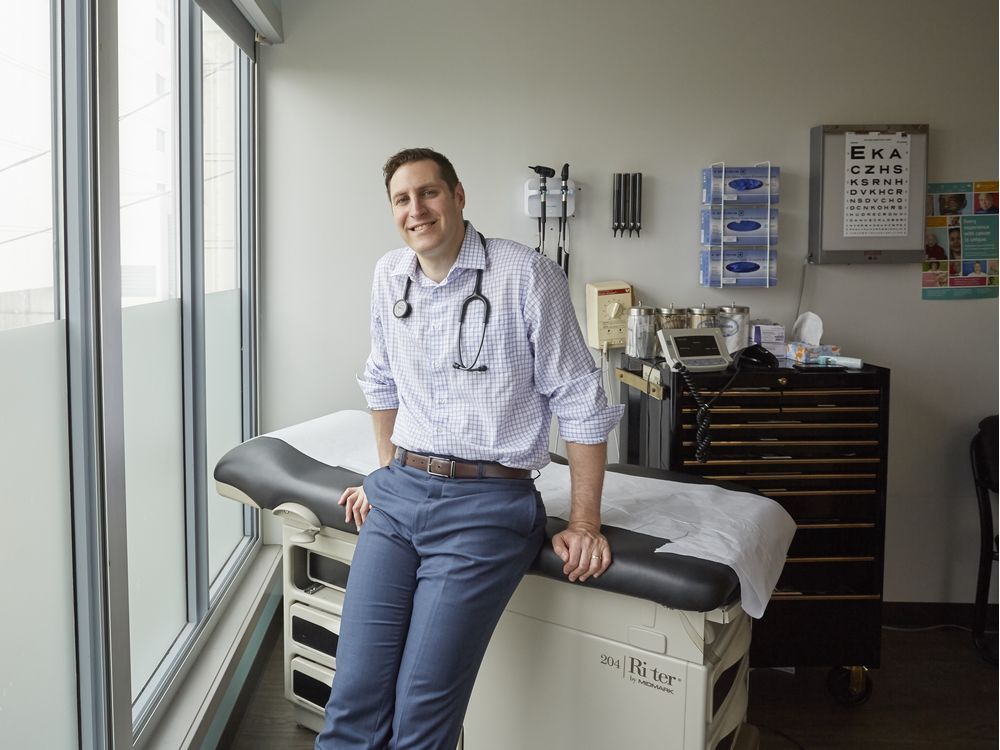Eric Cadesky: Should clinics turn away those who are not 'their' patients?

Credit to Author: Hardip Johal| Date: Tue, 03 Dec 2019 19:00:18 +0000
When reading the recent editorial by Dr. Rita McCracken et al. and its call to limit people’s access to care from virtual “walk-in” clinics, one cannot help but think of Justice Potter Steward’s admission that, while he could not define pornography, “I know it when I see it.” Similarly, it is easy to label some brick-and-mortar or virtual clinics as “walk-ins” and deride them for offering only episodic care, posting signs that say “one complaint per visit” or sending most difficult cases to the emergency room.
But these extremes are outliers that are over-represented in simplistic narratives. Reality is much more complicated.
I certainly agree with Dr. MacCracken and her colleagues that there is a dire need to strengthen primary care. Sixteen per cent of Canadians do not have a family doctor and those that do often cannot access a family doctor when most needed. This matters because having a doctor or care team that knows you leads to better health outcomes and more efficient care. Simply put, having a family doctor is good for your health and good for the healthcare system.
But the lines between traditional family practices and episodic care are increasingly blurred due to factors such as increasing healthcare needs of an aging population, rising business costs, and doctors’ demographic changes. For example, what should we call family practices (like mine) that offer advanced access — appointment times during the day reserved for patients of the clinic with urgent issues? These patients, while being attached to the clinic, are walking in.
And should clinics refuse to see people who are not patients of the clinic but have urgent issues? I would not turn away a febrile infant or an adolescent seeking vaccination or someone needing care after a motor vehicle accident just because they are not “my” patients. In fact, my experience is that many of these patients actually have their own doctors but cannot access them for various reasons: perhaps their doctors are fully booked or away without a replacement or located too far away. The latter is an important issue as housing pressures in British Columbia mean that many people commute significant distances to work or school, taking them away not only from their families and communities, but also from their usual places of care.
For those patients without a family doctor, every visit is an opportunity to find ways to come into the system, whether through community initiatives or within the clinic itself. In fact, several of the doctors that see patients through virtual “walk-in” platforms also work in clinics but are limited in the hours they can physically spend in the office due to competing family responsibilities. By allowing virtual care, doctors can spend time with their families and later be available to patients — especially their own — outside of the traditional daytime hours of many medical clinics. Similarly, when doctors are able to leverage technology to work flexible hours, this means that patients can in turn access care without being away from their own work and families.
So while major restructuring of our healthcare system is necessary to ensure people receive the care they need, it is simply unfair and unacceptable to deny access to the 400,000 people in British Columbia who don’t have a family doctor.
Instead of defensively limiting innovation and technology, let’s test different models of care and spread the successes so that people can overcome the current barriers to in-person care, such as physical disability, mental health, and transportation. Rather than bickering over how different clinics are trying to improve care in an outdated system, we need to move past traditional ideas if we hope to achieve a healthcare system that provides timely access to high-quality, efficient doctors and teams working with patients in the context of ongoing relationships.
And that is a goal I hope we can all agree on.
Dr. Eric Cadesky is a full-service family doctor in Vancouver.